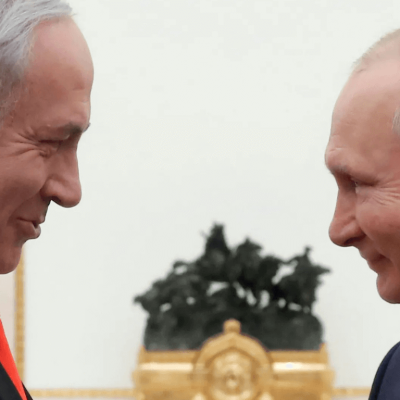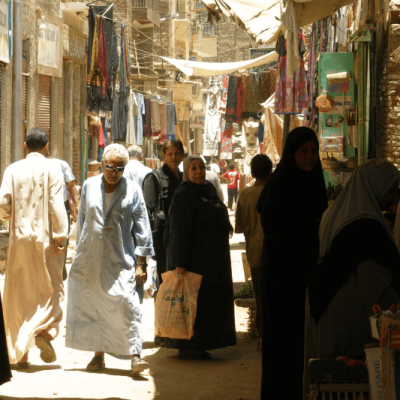Gaza’s Healthcare System Reduced to 19th Century Conditions by Israeli Airstrikes

Trying to treat patients with the most basic tools during a medical crisis, doctors in Gaza are operating in conditions reminiscent of a time long past. The Israeli blockade has choked off crucial supplies, consequently depriving hospitals and medical staff of the tools, medications, or hygiene standards required to give proper treatment. Once a healthcare system, even if it is always under pressure, it is now reduced to facilities where doctors can only offer what minimal help they have at hand. This situation reminds me of pre-modern combat medicine, when survival sometimes depended on simple therapy and pure luck.
The blockade has seriously reduced the availability of medical supplies, leading to frequent shortages of drugs, anesthesia, even bandages. Trying to save lives, doctors in Gaza are deprived of the necessary tools. Many doctors relate their current condition to those of practicing medicine in the 19th century, even with their modern knowledge and skills since it is so terrible. Driven to cope with war deaths, infectious diseases, and malnutrition with almost no resources, Gaza’s hospitals are hardly functioning.
An Unimaginable Injury Year
The past year has been particularly horrible for the Gaza medical community since they have dealt with injuries that test the imagination. From airstrikes and sniper action, both adults and young children have sustained horrible damage. The images of tiny children missing limbs or suffering from severe trauma serve as terrible reminders of the carnage of the war. High-powered weaponry cause these injuries, which often need for advanced medical procedures just not practical under the current situation.
The barrier means that Gaza’s medics lack the tools needed to sufficiently cure wounds. Patients are left in great discomfort since no anesthetic is available. Antibiotics are rare and lead to a lot of unnecessary deaths and diseases; they are also necessary for avoiding infections in open wounds. Worse worse, few safe water sources slow down the development of diseases including polio and Hepatitis A. One child is already paralyzed as polio, a disease virtually eradicated globally, returns. The swift spread of these diseases has prompted international organizations such as the World Health Organization (WHO) to launch vigorous immunization drives; yet, the situation remains appalling.
The Gaza Health Ministry claims that shockingly over 40,000 individuals have died among the population since the start of the war. Based on continuous carnage, independent projections show that should a solution be elusive, the death toll might rise to as high as 186,000. Respected medical journal The Lancet has alerted readers about the possibility of mass death from untreated injuries, sickness, and starvation; it projects a far more severe future should the blockage be maintained and appropriate medical assistance be denied into the area.
Alerts Ignored and the Return of Pre-Modern Medicine
From the beginning of this catastrophe, several world health officials and organizations shouted the warning. Along with other humanitarian groups, the WHO advised Palestinians on the severe health consequences should the violence and limitations on medical help continue. Still, the world community has failed to react properly in spite of these warnings, which has permitted the problem to get worse. The outcome has been a progressively lethal environment where the most fundamental medical treatment is now impossible to deliver.
Not merely a tragedy of modern combat, what is happening in Gaza currently is a comeback into medical problems that should have been banished to the past. Although disease and famine followed war in the past, Gaza’s suffering is much more terrible knowing that we have the means to avert these tragedies. Still, the barrier keeps doctors from employing these tools. Though they have modern medical knowledge, they lack the equipment and facilities needed to save lives.
This startling parallel to pre-modern medicine: For instance, during the American Civil War doctors were just beginning to see the importance of hygiene and infection control. Two-thirds of all deaths at that time were diseases including typhoid, malaria, and dysentery—conditions that would have been easily avoided with modern sanitation practices. Gaza in many ways mirrors these historical events: sickness is rampant, sewage systems are failing, and fresh water is almost nonexistent. Unlike in the Civil War era, Gaza’s doctors now know exactly how to treat these diseases; unfortunately, the barrier keeps them from responding.
A Grim Parallel: Gaza and the Civil War
Though fought more than 160 years ago, the American Civil War offers a startling connection to the current medical disaster in Gaza. While scant scientific knowledge defined the medical community of the Civil War, Gaza’s doctors cope with another kind of difficulty. Even while they know, the blockage has left them without the required instruments for contemporary treatment. Since doctors knew nothing about the propagation of germs or how to sterilize their tools, most of the deaths in the Civil War resulted from preventable infections. Lack of sanitation in Gaza is the outcome of deliberate resource denial rather than ignorance. Doctors know how to cure illnesses and execute procedures even when they are powerless without anesthetic, antibiotics, or clean water.
Medical treatment on the front lines of the Civil War was primitive but gradually improving. While morphine was given to lessen their suffering, troops sometimes became addicted from anesthesia they received during surgery. Conversely, children in Gaza now suffer horribly and unnecessarily from amputations without any type of anesthesia. Medical science has progressed since the Civil War should have assured that such suffering never returned, but Gaza’s doctors are being forced to work under far harsher conditions than those of the 1800s.
Civilians Bearing the Brunt, Not Military Participants
One of the most depressing aspects of the ongoing conflict is the fact that civilians—not military—are experiencing most of the carnage in Gaza. Throughout the Civil War, most dead fell among warriors. In Gaza, however, the dead overwhelmingly comprised civilians. Either they are caught in the crossfire of airstrikes or innocent people are being killed by sniper fire during evacuation. Many more are dying slowly, horrific deaths from untreated injuries, starvation, and disease.
Targeting Gaza’s medical facilities makes it impossible for doctors to treat even the most basic ailments. Children who would have survived their injuries with suitable treatment are now dying from infections; illnesses such polio and Hepatitis A are now uncontrolled. Apart from limited access to medical supplies, the blockade makes it difficult for humanitarian assistance to reach persons in need. Without help, the death toll will keep increasing; the suffering of the people will only become worse.
The American Civil War spurred developments in battlefield medicine, including the introduction of anesthesia and the building of ambulance services, which would go on to benefit countless people in the years to come. These findings helped to define modern medicine as we know it today. Gaza’s doctors are being driven to work under conditions reminiscent of a bygone age even with the great progress in medical science. The technological and technical advances of the past century should have made the kind of suffering seen in Gaza unthinkable, but the blockade renders these successes ineffective.
The ongoing conflict has revealed a huge fall in mankind whereby the denial of medical treatment becomes a weapon of war. World leaders have turned aside the suffering, therefore enabling the blockade to continue and so depriving medics of the means to save lives. Medical achievements of the twenty-first century are useless if they are not let to reach those in need. The status of Gaza serves as a sobering reminder that, in times of crisis, medical development counts little if it cannot be put into use.
One cannot enable the humanitarian disaster to continue. Should the embargo continue, the people of Gaza would continue to die from preventable causes should immediate medical aid not be provided. The world has to act immediately to halt more suffering and provide access to life-saving medical treatment once again. Inaction puts us at risk of delivering an entire people to a medical fate worse than those of the 19th century.




